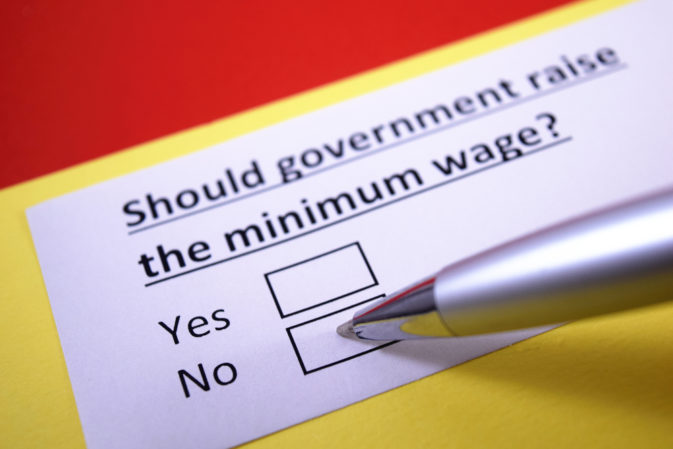A $15 federal minimum wage is not the answer

It’s a new year, but small businesses will continue to face the prospect of a $15 increase in the federal minimum wage. Some areas have already taken the plunge, including New York City and San Francisco. Floridians are the most recent group to agree to the idea by voting to raise the minimum wage to $15 an hour statewide by 2026.
THE ARGUMENT FOR A HIGHER MINIMUM WAGE
Proponents of higher mandatory wages argue the policy provides workers with fair pay. But businesses already reward employees who learn new skills and have experience with additional money. Entry-level pay, on the other hand, is typically reserved for exactly who it sounds like: entry-level workers who are trying to gain a skill set.
THE COUNTERARGUMENT
While compensating entry-level employees $15 an hour is reasonable in high-cost-of-living areas like New York City, Miami, or Chicago, businesses in most of the country would struggle to cover the one-size-fits-all pay requirement. For example, Azim Saju, President and CEO for HDG Hotels commented that the impending incremental minimum wage increase to $15 an hour will add an additional $1 million to his company’s payroll costs during the first year alone.
COVID-19 CONSIDERATIONS
Moreover, the pandemic that has plagued the country has left businesses gasping for air, especially restaurants and hotels that were forced to restrict capacity or close down entirely for parts of 2020. Additional financial strain could push those that did survive over the edge of bankruptcy. Now is the time to grant businesses – especially small ones – financial reprieve, not additional liability.
RESEARCH AND PRACTICE
Raising the minimum wage has a storied history of harming businesses and their employees. Researchers from Harvard Business School found that in San Francisco, for every $1 increase to the minimum wage, an average-rated restaurant had a 14-percent higher likelihood of closing. Since 2018, the city’s $15 minimum wage has cost more than 1,000 jobs in the restaurant industry alone.
In Seattle, economists determined a shift to $13 per hour in 2016 caused a 9-percent decrease in low-wage employee earnings because of cuts to working hours. As of this month, Seattle has implemented a $16.69 per hour mandatory wage – one of the highest local minimum wages in the country – for many entry-level workers. The move is expected to slash even more people off payrolls and reduce hours further.
BEYOND HOSPITALITY
Raising the minimum wage at the federal level would have a similar negative impact on all industries across the country. According to a 2018 study from the Congressional Budget Office, raising the federal minimum wage from $7.25 to $15 per hour would cost 1.3 million jobs. Another more recent analysis released by the Employment Policies Institute found a $15 minimum wage, along with a paralleled increase in the tipped wage, could result in more than two million lost employment opportunities.
At a time when the economy is rebuilding, those with jobs cannot afford to lose them. Americans are looking to get back to work, not be laid off indefinitely. On a similar note, the small business community, which is typically the glue that holds the economy together, should be encouraged to grow via public policy, not road blocked.
Fighting for an increase to the federal minimum wage should not be a priority for Washington bureaucrats. Rather, the focus should be on smart policies that encourage economic growth and financial stability for small businesses and the hard-working Americans they employ.
Alfredo Ortiz is the President and CEO of the Job Creators Network.





